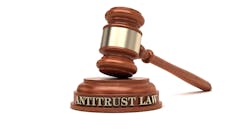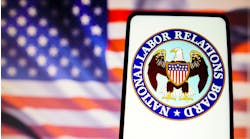Two federal agencies are seriously examining deploying antitrust laws to target potential anticompetitive behavior by employers who are rigging the labor market during the Coronavirus pandemic.
The Department of Justice (DOJ) and Federal Trade Commission (FTC) have issued a joint antitrust statement regarding COVID-19 and competition in labor markets and laying out how they will move against employers they believe are engaging in the prohibited behavior.
The agencies stress that although there are many permissible ways that firms can engage in procompetitive collaboration, COVID-19 does not provide a reason to tolerate anticompetitive conduct that harms workers, including doctors, nurses, first responders, and those who work in grocery stores, pharmacies and warehouses, and other essential service providers.
The agencies are on alert for employers, staffing companies and recruiters who engage in collusion or other anticompetitive conduct in labor markets, including entering into agreements to reduce salaries or hours worked.
Take, for example, naked wage-fixing and no-poach agreements, which DOJ says it may choose to prosecute criminally. It defines a wage-fixing agreement as “an agreement between employers not to compete on employee salary, benefits or other terms of compensation, either at specific levels or within a range.”
Keep in mind the agencies hold that a “no-poach agreement is an agreement between two or more employers—or their third-party agents or intermediaries (e.g., recruiters)—not to cold-call, solicit, recruit, hire or otherwise compete for each other’s employees.” Making matters more complicated for employers is that over the years the two agencies have taken slightly different views of whether “no-poaching agreements” by their very existence are considered illegal.
The FTC has said that if an employer collaborates with other employers as part of a legitimate collaborative activity, “no-poaching agreements or other restraints on recruiting workers may be reasonably necessary to that undertaking” and are not considered illegal per se. But the commission recently explained that restrictions on soliciting employees “must be narrowly tailored to protect the value to the business of the personnel at issue; they should not act as a de facto no-poach agreement.”
“While the DOJ has not yet publicly announced any criminal charges in this area, officials have on numerous occasions reiterated the DOJ’s enforcement intentions and have indicated that there are active criminal investigations,” explain attorneys for the law firm of Paul Weiss Rifkind Wharton & Garrison.
Another set of attorneys for the Pepper Hamilton law firm point out that collusion can be found when there is the unlawful exchange of competitively sensitive employee compensation information, such as salary, wages and benefit data, even if the exchange does not result in an agreement on setting wages or other terms of employment.
The Pepper Hamilton attorneys are emphatic that employers need to tread carefully through this legal minefield: “The joint statement serves as a strong reminder that, even though COVID-19 may be calling for unprecedented business collaboration, antitrust laws have not been suspended and the agencies have not abandoned their enforcement missions to root out anticompetitive conduct in the labor markets.”
The FTC-DOJ joint statement informs employers that “individuals involved in the hiring, recruitment, retention or placement of workers” should be aware of the civil and criminal liability they can face if found to be violating antitrust laws. In terms of criminal action, the agencies also say that companies found to have engaged in “naked wage-fixing and no-poach agreements” can be subject to criminal prosecution.
Although the joint statement doesn’t create new law, it strongly warns employers about the antitrust laws and the agencies’ enforcement powers, note the Pepper Hamilton attorneys. “These powers have not diminished in the wake of COVID-19. Rather, the agencies appear laser-focused on enforcement efforts that may help employees.”




